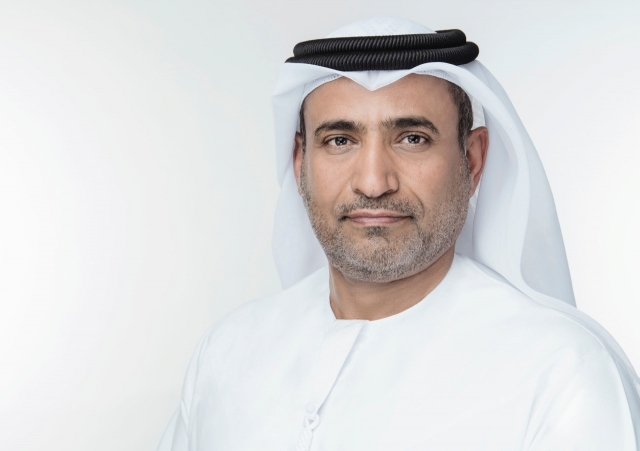$600 bln Needed to Meet Regional Aircraft Demands by 2038
Regional aircraft markets will need $600 billion in investments to meet the demand for 150-seat 10,550 aircrafts by 2038 due to rise in air travellers, according to a report by aerospace company Embraer. Market growth will drive 65% of this demand for aircraft, while the remaining 35% will replace ageing aircrafts, the report adds.
These developments will be one of the highlighted investment opportunities at the next edition of Global Investment in Aviation Summit (GIAS).
GIAS is an initiative of the UAE General Authority of Civil Aviation (GCAA) and will be held on 27-29 January 2020 in Dubai under the theme ‘Enabling Global Aviation Growth through Fund Raising and Key Partnerships’.
The mega event will bring together more than 200 investors, besides selected government officials, aviation organisations, finance & insurance firms, aviation asset owners, aircraft operators & logistic service providers and legal consultants, and it highlights the biggest investment opportunities in the aviation industry with all its various sectors throughout the globe.
Saif Mohammed Al Suwaidi, Director General of UAE-GCAA, said, “Investments in aviation are more vital now as regional aviation enjoys the economic benefits of robust tourism and improved regional connectivity. The rapid growth of aviation is propelled by many factors, including booming tourism industry, lower air fares, improved connectivity, and the rise of disposable incomes with the middle-class expansion. All these and more will be part of the investment opportunities that will be presented at GIAS.”
Asia Pacific will drive the highest market share for 150-seat aircraft capacity by 28 per cent or 3,000 deliveries with North America following closely behind with 2,780 (27%), Europe with 2,240 (21%), Latin America with 1,140 (11%), CIS with 580 (6%), Africa with 450 (4%) and the Middle East with 360 (3%), according to Embraer, the leading Brazilian manufacturer of commercial aircraft with up to 150 seats.
Contributing to the greater demand for airline services is the successful tourism promotion of emerging economies. To cater to the demand, global aviation industry has been improving its connectivity for emerging destinations and ensuring increase in flight frequencies. Airlines have also adopted low-cost carriers, a segment that contributed to the consistent decrease in air fares by 0.9% annually, greatly impacting market competition.
Africa has taken steps through its Single African Air Transport Market (SAATM) to address its aviation infrastructure gap and is expected to enjoy an increase in passenger traffic by 4.6% through 2037.
SAATM, which was launched last year, seeks to increase the number of flights between countries, reduce bureaucratic intervention and air fares, and provide a workable framework for easing visa requirements to trigger tourism growth in the signatory market.
In Asia, the growing market for Maintenance, Repair and Overhaul (MRO) has sparked Thailand’s bold move to focus on its MRO market as a part its plans to transform Eastern Economic Corridor into an integrated technological hub for services and manufacturing.
These developments have prompted aviation industries from around the world to construct, develop and modernize their air transport infrastructure to boost their capacity and to accommodate the required growing fleet. The growing industry has also been instrumental in the quest to forge regional cooperation and improvement of current government policies.
As regional integration of aviation expands, the volume of business travelers, trade and logistics operations are expected to increase. The consistent growth of the aviation industry will also call for the improvement of human resource requirements as well as safety and congestion issues.
UAE has been leading the regional aviation industry with an impressive volume of passenger and cargo traffic every year. Through the UAE-GCAA, the nation’s progressive approach to sustain the growth of its local aviation is remarkably shown by investments made in training of airline and airport personnel.
Further, as UAE is one of the busiest airports in the world accommodating hundreds of flights each day. To address the issue of airspace congestion, UAE-GCAA launched their Airspace Restructuring Project (ARP) in 2017 which relies on satellite and airplane computers to guide aircrafts with their routes.
Al Suwaidi also added that as aviation is a key pillar in UAE national economy, the nation is investing heavily on modernisation and expansion of its major international airports to meet the demands for passenger traffic which is anticipated to increase every year.
Investment opportunities in the UAE and participating countries will be featured at during the three-day event GIAS in January. For more info on GIAS, or to register your visit, check www.gias.ae.
Global Investment in Aviation Summit is a specialized platform catering to investments and projects in aviation.
GIAS is an initiative of the UAE General Civil Aviation Authority. It will be participated in by aviation ambassadors, knowledge partners, senior level attendees, and regional and international investors.











